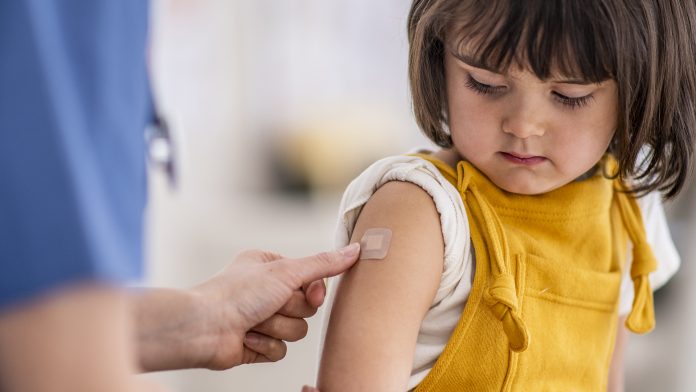Often misunderstood, the vaccine industry has received a great deal of bad press but are the claims made on social media a product of fact or fiction?
Despite all the fantastic advances in immunisation over recent decades, 1.5 million children still die annually from vaccine-preventable diseases. And not all our advances are secure. Last year 25 countries reported a net decrease in immunisation coverage since 2010.
Busting vaccine myths
The World Health Organisation (WHO) have published a list of facts about vaccines that are often misunderstood and argued by members of the anti-vaccination movement.
- Fact 1: Immunisation through vaccination is the safest way to protect against disease. Whatever you might read or hear, vaccines produce an immune response like that produced by the natural infection, but without the serious risks of death or disability connected with natural infection.
- Fact 2: It is always best to get vaccinated, even when you think the risk of infection is low. Deadly diseases that seem to have been all but eradicated have a nasty habit of making a come-back when immunisation rates drop – as we see with the recent measles outbreaks across Europe. Only by making sure everyone gets their jabs can we keep the lid permanently on vaccine-preventable diseases. We should not rely on people around us to stop the spread of disease – we all have a responsibility to do what we can.
- Fact 3: Combined vaccines are safe and beneficial. Giving several vaccines at the same time has no negative effect on a child’s immune system. It reduces discomfort for the child and saves time and money. Children are exposed to more antigens from a common cold than they are from vaccines.
- Fact 4: There is no link between vaccines and autism. There is no scientific evidence to link the MMR vaccine with autism or autistic disorders. This unfortunate rumour started with a single 1998 study which was quickly found to be seriously flawed and was retracted by the journal that published it.
- Fact 5: If we stop vaccination, deadly diseases will return. Even with better hygiene, sanitation and access to safe water, infections still spread. When people are not vaccinated, infectious diseases that have become uncommon can quickly come back to haunt us.
When people have questions about vaccines, they should ask their health providers and check accurate websites for information. Vaccine Safety Net, a global network of vaccine safety websites certified by WHO, provides easy access to accurate and trustworthy information on vaccines. The network has 47 member websites in 12 languages and reaches more than 173 million people every month with credible information on vaccine safety, helping to counter harmful misinformation.
We are incredibly fortunate to live in an age that has recognised and successfully harnessed the power of vaccines.
Egg vaccines, novelty or effective treatment?
Flu season is underway, sickening millions of people and in rare cases, causing hospitalisation or death. The best prevention is a flu vaccine, but it’s not unusual for these to be less effective than intended. Some researchers suspect that the common practice of producing vaccines in chicken eggs could be partially to blame, according to an article in Chemical & Engineering News (C&EN), the weekly news magazine of the American Chemical Society.

Before each flu season, the World Health Organisation (WHO) selects specific influenza viruses to include in that year’s shot. Currently, most vaccines are made by growing these viruses in fertilised chicken eggs, purifying the viruses and inactivating them. However, sometimes the WHO guesses wrong on which viruses will be active that year, or viruses mutate in the wild so that they are different from the ones in the flu shot. Viral mutations can also occur during vaccine production: Because avian cells display different proteins on their surfaces than human cells, sometimes the influenza virus mutates so that it can better latch onto and infect bird cells, Associate Editor Leigh Krietsch Boerner writes. As a result, the immune system of a person who got a flu shot might not recognise and attack the influenza virus they become infected with.
Partly in response to this concern, some manufacturers have developed egg-free methods. For cell-based vaccines, viruses are grown in canine kidney cells, which are more like a human’s than bird cells are. To produce recombinant vaccines, researchers transcribe viral antigens—cell-surface proteins that trigger an immune response—into DNA, which they insert into a carrier virus. This virus is then used to infect the cells of fall armyworms, which make large amounts of the flu antigen proteins. However, few studies have been conducted on whether the egg-free preparations are more effective, and most scientists agree that getting any flu vaccine is better than none.
Vaccinating against cancer
GenScript, a world leading biotechnology company, announced its support today of Avidea Technologies’ efforts to develop a peptide-based personalised cancer vaccine.
Research published in Nature Biotechnology on January 13, 2020 describes the systematic development of Avidea’s personalised cancer vaccine (SNP-7/8a) based on a self-assembling nanoparticle technology (referred to as “SNAP”), which was shown to more efficiently induce T-cell responses against tumour neoantigens compared to traditional vaccines. Developing and validating SNP-7/8a as a personalised cancer vaccine required synthesis of hundreds of unique neoantigen peptides, which were successfully synthesised by Genscript in support of this work.
“Screening hundreds of neoantigens in mice to validate the generalisability of SNP-7/8a was a tremendous undertaking that could not have been possible without the diligent efforts of GenScript’s peptide chemists who were able to rapidly synthesise even the most challenging sequences at the high purity required,” said Avidea Technologies’ CEO Geoffrey Lynn, PhD, a primary author of the study.
The publication is particularly timely as personalised cancer vaccines are garnering increasing attention among the scientific and medical community as important components to enabling precision immuno-oncology.
While traditional cancer treatment is largely based on “one size fits all” approaches such as chemotherapy and radiation, which can be limited by off-target effects and low efficacy for treating certain advanced cancers, precision immuno-oncology promises to reduce off-target toxicity and improve efficacy by training a patient’s own immune response, particularly T cells, to attack cancerous cells.

Key to enabling precision immuno-oncology is focusing the immune response against tumour-specific peptide antigens, particularly neoantigens, which are mutant peptides that are unique to cancerous tissue and are not found in healthy tissue. Current vaccines using neoantigen peptides have shown promise in initiating neoantigen-specific T-cell responses. However, the response itself is often not as robust as may be required for tumour regression, which may be in part due to the inability of conventional vaccine platforms to account for the broad variability of neoantigen peptide properties.
In order to address challenges associated with neoantigen peptide variability, Avidea Technologies, working in close collaboration with the Vaccine Research Center at the National Institutes of Health (NIH), developed a personalised cancer vaccine platform (SNP-7/8a) that ensures any neoantigen peptide, irrespective of the underlying amino acid sequence, can be self-assembled into uniform nanoparticles of an optimal sise and composition for inducing T-cell responses.
To support this work, GenScript synthesised hundreds of challenging neoantigen peptides that were selected to have a wide range of properties, including neoantigen peptides with extremes of net charge and hydrophobicity, which was instrumental to enabling Avidea and NIH scientists to validate the generalisability of the SNP-7/8a platform as a personalised cancer vaccine. In order to accomplish these challenging syntheses, the GenScript team utilised their 15 years of experience in complex and hydrophobic peptide synthesis, high throughput LPS/SPS/microwave synthesis platforms, and patented quality control program.
“We are honoured that Avidea chose to partner with GenScript to synthesise the hundreds of difficult peptides required for this study. As neoantigens can have quite variable properties, working on this project has strengthened our ability to manufacture large quantities of these difficult peptides,” said Xin Zhang, associate director of GenScript’s peptide services. “We look forward to our continued collaboration with Avidea on future breakthrough neoantigen peptide vaccines to advance the precision immuno-oncology field.”
Leveraging GenScript’s core strength in difficult peptide synthesis, Avidea and the NIH were able to demonstrate the utility of SNP-7/8a for improving formulation consistency and increasing the magnitude and breadth of neoantigen-specific T-cell responses in mice as compared with two gold-standard cancer vaccine technologies. Additionally, the SNP-7/8a platform was also shown to induce CD8 T-cell responses in non-human primates, which is predictive of responses in humans. Based on these encouraging data, Avidea is planning to advance SNP-7/8a to clinic in 2020.
GenScript was pleased to support these studies and hopes that such efforts and continued cooperation with Avidea and others in this space will lead to more efficacious precision immuno-oncology treatments and ultimately improved outcomes for patients.







